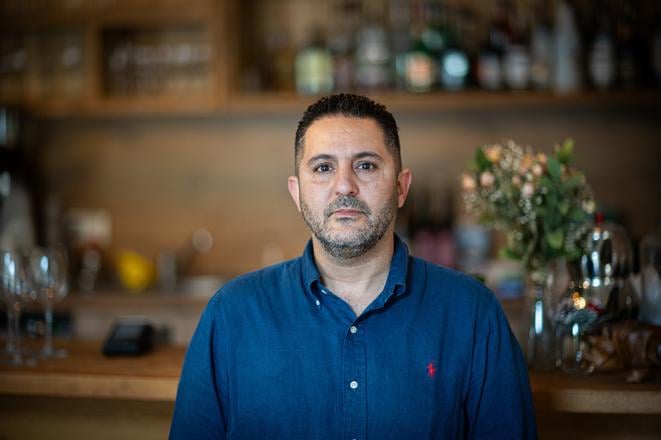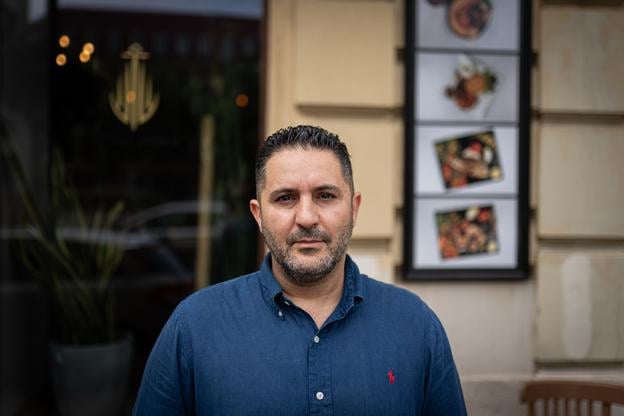As Jordanian Tawfiq Kayaali, 47, sits at a wooden table in his Lebanese restaurant Levant, explaining how he ended up in Slovakia, oriental music plays softly in the background, accompanied by the rich aroma of spices wafting from the kitchen.
When he first arrived, the sense of freedom was overwhelming. “I’ve always been a bit of a rebel. In our culture, it doesn’t matter how old you are—if you’re not married, you must live with your parents and obey them,” he says.
You’ve been in Slovakia for 28 years. Why did you come?
I first visited when I was 19. Originally, my parents and I thought I’d go to university in England, but I liked it here so much that I decided to stay. I studied at City University, and later moved to Austria.
Where in Jordan did you grow up?
I’m from Amman—the capital. I grew up in an environment full of family life and traditional values. People often get together within the family circle or just over a cup of coffee. That spontaneity—someone dropping by unannounced for a chat—is something I sometimes miss. Still, Slovakia is very dear to me, and I’m happy to be here.
You were 19 and in a different country. What was that like?
I felt a great sense of freedom. I wanted to move out and live independently. As I said, I’ve always been a bit of a rebel. It doesn’t matter how old you are—if you’re not married, you must live with your parents and obey them. Mine weren’t particularly strict, but I wanted to see more of the world.
What did you come to like in Slovakia?
The people, mainly, and the social life. In some ways, Slovaks are like a big family. In 1997, there were very few foreigners, and Slovaks paid more attention to us. Neighbourly relations were completely different compared to England or Austria. People there are more reserved; they don’t open up like Slovaks do. Back then, I lived in Staré Mesto and Rača—everyone on the street knew one another. People used to meet more often. These days, that sense of community is fading. Most people in the same building don’t even know each other, sometimes they don’t even say hello.
That’s likely due to more people moving to the city—it’s become more anonymous.
Yes, but I’ve noticed that in smaller towns and villages, it’s still better.
Were you accepted by Slovaks?
Absolutely. That’s why I take issue with claims that Slovaks are arrogant towards foreigners. If that were true, I wouldn’t be here. I run a business in Slovakia even though Austria has a stronger market and more business potential. But it’s not just about business—I lived in Austria for years and didn’t make a single native friend. In Slovakia, I’ve lost count.

 Tawfiq Kayaali. (source: SME/Marko Erd)
Tawfiq Kayaali. (source: SME/Marko Erd)
 Tawfiq Kayaali. (source: Marko Erd)
Tawfiq Kayaali. (source: Marko Erd)